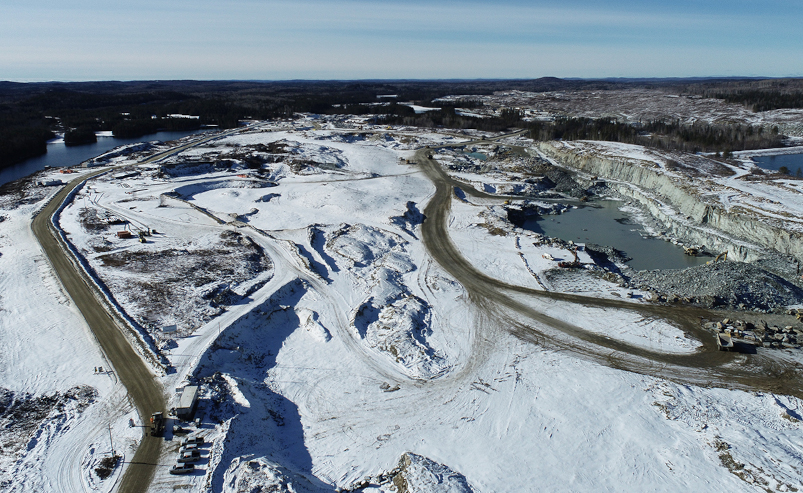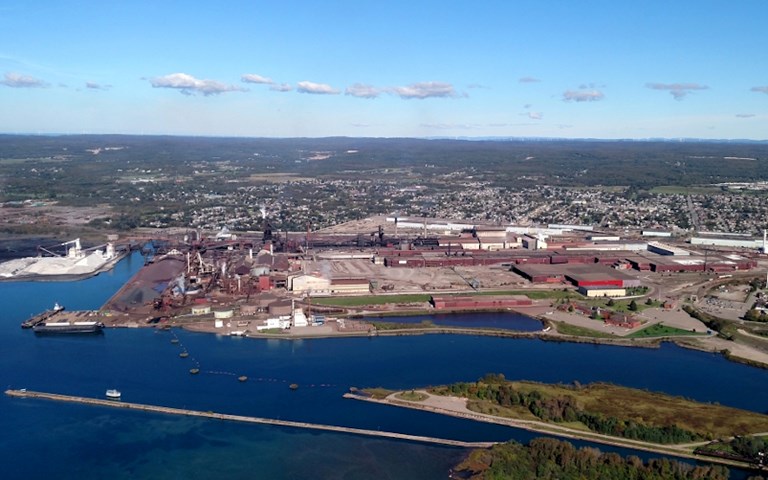The investment is expected to create 500 construction jobs and over 600 co-op placements for students. Courtesy of Algoma Steel.
On July 5, the Government of Canada announced that Algoma Steel in Sault Ste. Marie, Ontario will receive up to $420 million in federal funding in order to support its transition to electric-arc furnaces, and away from the coal-fired steelmaking processes. The Office of the Prime Minister reported that switching to the arc-steel process is expected to cut greenhouse gas emissions by more than three million metric tonnes per year by 2030, the equivalent of taking nearly 900,000 passenger vehicles off the road – almost the number of passenger vehicles in Toronto.
The investment is expected to create 500 jobs through the project’s construction phase and subcontracting, and over 600 new co-op placements for students. In addition, 75 Algoma employees will receive skills training in STEM fields. The total cost of the project is estimated at $703 million.
Related: Glencore emphasizes environmental positives of becoming sole owner of the Colombian thermal coal mine
Of the total funding, $220 million will be provided by Canada’s Infrastructure Bank and $200 million by the Strategic Innovation Fund’s “Net Zero Accelerator” initiative, a five-year, $3 billion initiative by the Canadian government “to rapidly expedite decarbonization projects with large emitters, scale-up clean technology and accelerate Canada's industrial transformation across all sectors.”
Prime Minister Justin Trudeau was quoted as saying that, “Investments in clean technology benefit the environment and our economy. Today’s announcement is great news for the people of Sault Ste. Marie. It will help Algoma Steel create good middle-class jobs and cut pollution, while positioning Canada as a leader in cleaner and greener steelmaking. The government will continue to support Canadian businesses and workers as we accelerate our transition to a clean-growth economy that leaves no one behind."
On June 29, the federal government announced a similar $20 million investment in Rio Tinto and Alcoa’s ELYSIS joint venture for carbon-free aluminum smelting.




